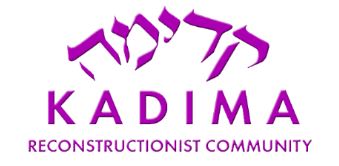This week’s parasha, Shemot, begins the Book of Exodus/Shemot by outlining the shrewd and cunning ways those in power can create a narrative for the sake of othering, demonizing, oppressing, and enslaving. Pharaoh details his plans citing that the Israelites have become a demographic threat and may have dual loyalties. He uses labor exploitation and reproductive oppression to attempt to keep the Israelites down, but the resistance proves itself too strong. These tropes that ring through centuries of antisemitism and so many forms of oppression continue to be used today in ways that further divide and confuse, attempting to break apart movements for justice.
In this context of this week's reading, some local Jewish leaders met with Seattle city leaders this week to discuss antisemitism. I was not in attendance at that meeting though I had a chance to share both my excitement that elected leaders are engaged in conversations about antisemitism, and my concern about these conversations. I fear they promote a definition of antisemitism that can hurt Jews and progressives (let alone Jewish progressives!), particularly those who seek to promote Palestinian human rights, while too often minimizing or ignoring the antisemitism that so shrewdly animates white Christian nationalism. Below is an edited version of what I shared with colleagues who attended the meeting. I welcome your thoughts, feedback, thinking, article recommendations, and simply letting me know you are interested in continuing to learn/be informed as this continues to develop - because it will. For some background, here is a piece on antisemitism in Seattle from September 2019. You may want to as well.
I am so glad to hear that combating antisemitism is on the agenda of our city leaders! And, I am concerned that the presenters will paint the Federation’s statement on antisemitism in September 2019 and the International Holocaust Remembrance Alliance (IHRA) working definition on antisemitism as consensus statements of our community. It is not.
Many organizations have expressed concerns with the IHRA working definition on antisemitism, especially when used in legal and governmental matters, from the ACLU to the Reform Movement to the Progressive Israel Network (including T'ruah, NIF, and Reconstructing Judaism), Foundation for Middle East Peace, and, notably, the Jerusalem Declaration on Antisemitism who offer a different analysis as well.
In summary of the concerns, using the IHRA working definition risks violating protected speech, equating criticism of Israel with antisemitism, and punishing voices who speak out for Palestinian human rights in ways that do not demonize Jews or Israel as a collective. Here was an op-ed on the matter from April 2021 and some news on the tension here from November 2022 citing hundreds of academics who oppose the use of the IHRA definition in these ways. I realize there are those who support the IHRA definition without reservation. While I do not contend that, I simply contend that there is no "Jewish consensus" on the issue. I truly wish our own community could have open dialogue on the topic and/or acknowledge to those in the halls of power that fact.
I worry that any document on antisemitism such as the IHRA definition in which most of its examples pertain to criticism of Israel will do a disservice to and obscure work against antisemitism in its most dangerous, violent, and organized forms, as a tool of the ultra-right who also often shows up in very Zionist looking ways. I worry that it supports a tendency and/or strategy by some to attack leaders they oppose politically (usually "progressives" who stand for many issues Jews also work toward) using an individual's or group's stance on Israel or Palestine as an excuse.
Your thoughts are welcome on the matter, and be in touch if you would like to be involved in learning, connecting, and action on this issue. Particularly as we celebrate the Rev. Dr. Martin Luther King’s birthday this weekend, let us find one another to advance work to end antisemitism that also works to end all forms of oppression.
Shabbat shalom,
R’ David

 RSS Feed
RSS Feed